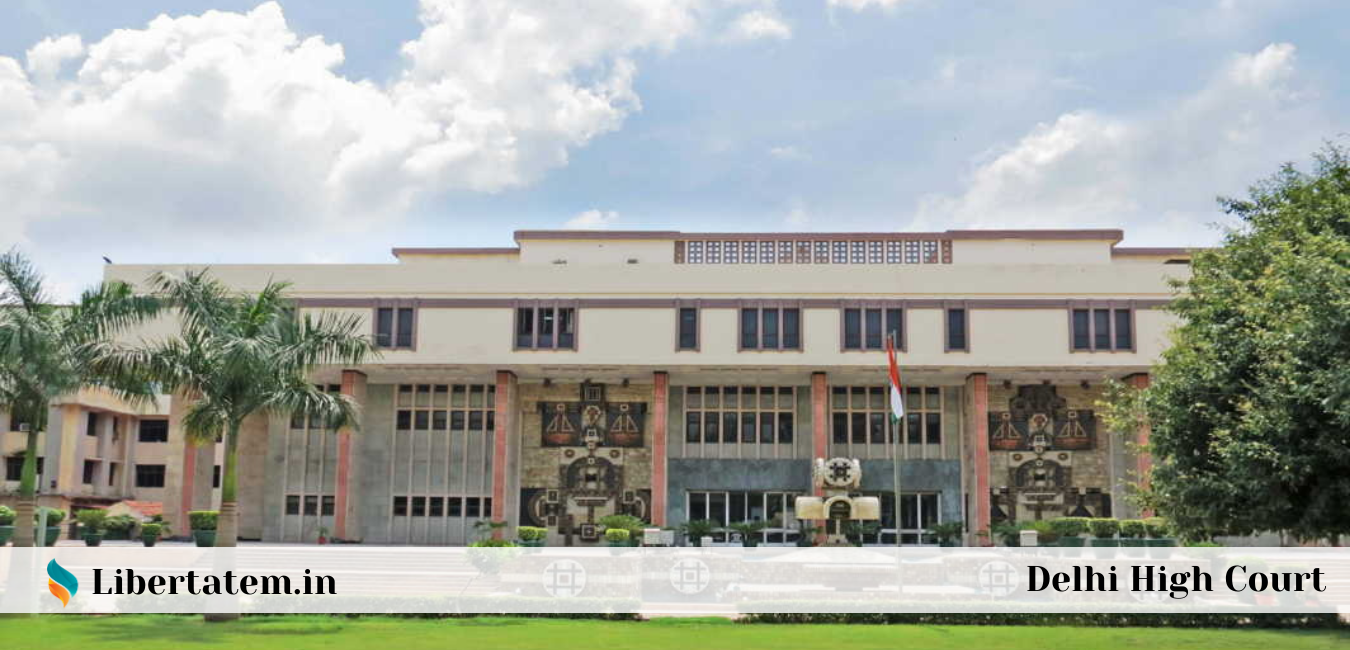The two judges bench in Delhi High Court examined the allegations made against a student activist and an accused who was arrested for being involved in the Citizenship Amendment Act protests in Delhi which were known as the 2020 Delhi Riot.

Facts of the Case
The appellant, in this case, is a student of Jamia Millia Islamia University in New Delhi. He had been involved in the 2020 Delhi riot, which took place in the protest of the Citizenship (Amendment) Act 2019. He was charged under multiple sections of the Indian Penal Code, 1860, Prevention of Damage to Public Property Act, 1984, and Unlawful Activities (Prevention) Act, 1967. He was arrested on 19th May 2020. He is currently under judicial custody. In the present case, the appellant is seeking bail. However, this case sees no usual bail as the charges are massive considering the appellant is charged against four serious Sections under UAPA that deal with terrorism activities.
State’s allegations
The Special Cell of Delhi Police filed a charge sheet against the appellant based on which there are serious allegations. The allegations in the charge-sheets were as follows-
The appellant was the main conspirator behind the riot that happened in the North-East parts of Delhi. Also, the appellant formed a group of Jamia Co-ordination Committee in the WhatsApp platform. That, on the day of the riot, the committee of JCC held a “chakka jam” which was a protest, causing stoppage of vehicle movements and blockade of roads. On 22nd February 2020, in a meeting of JCC at Jaffrabad metro station, the appellant was told about the preparations for riots.
The State’s allegations were purely clear from the fact mentioned in the charge sheet that the active members of JCC handled the riots that occurred in Delhi as per their conspiracy and that they had a motive to create riots that caused the death of several people in Delhi.
Appellant’s submissions
Initially, the charges that were made against the appellant were Sections 147, 148, 149, 120B of IPC, 1860 which were all bailable offenses, but later the sections of UAPA were subsequently added to the subject F.I.R where specific allegations were contained. The MOR or the material of record does not make out any offense engaged in any unlawful activity by the appellant.
Respondent submissions
The grant of bail, however, depends on the pieces of evidence available whether they can provide a conclusion that the present case is prima facie true. In the argument, the respondent submitted that this case deals with a serious disturbance, leading to undermining the security of the state. Further, the argument leads to a submission that the appellant with co-accused conspirators willingly and deliberately created a communally surcharged environment dividing the religious communities. And as a result, society was affected not only physically or merely mentally but also psychologically.
Court’s observations
The court comprising two justices bench in the present case analyzed all the Sections and Acts under which the appellant has been charged. While examining the facts based on the charges of UAPA sections, the court observed that “the court must be careful in employing the definitional words and phrases used in section 15 in their absolute literal sense or use them lightly to trivialize the extremely heinous offense of ‘terrorist act’, without understanding how terrorism is different even from conventional, heinous crime.”
Also, the court referred to the case of Hitendra Vishnu Thakur in the Honorable Supreme Court where it was laid down that all terrorists are criminals but all criminals are not terrorists and every criminal cannot be labeled as terrorist only to go under the stringent provision of the Act. In para 57 of the 133 pages judgment of the present case, the court has stated the observation regarding the stipulation of the UAPA, 1967 that the only intent of including terrorist activity in its scope was to deal with matters related to a huge impact on the ‘Defence of Indian’ and nothing more or less than that.
Considering the right to protest guaranteed under the Constitution of India, the court has wonderfully observed the fact that the alleged activity of protest against CAA was restricted to only the North-east area of Delhi and not the whole of the National Capital Territory of Delhi, so it does not qualify to consider an act of terror since the protest did not affect the ‘community at large.’
Court’s Decision
The court found that there was no offense made out against the appellant under Sections of UAPA. Therefore, the grant of bail is considered as per the general principles of bail under Cr.P.C. Also, considering that the prevailing second wave of the COVID-19 pandemic, the trial will not commence on any near date, and considering all other facts, witnesses, and circumstances in the present case the appeal is allowed and thus the appellant is granted bail.
Libertatem.in is now on Telegram. Follow us for regular legal updates and judgment from courts. Follow us on Google News, Instagram, LinkedIn, Facebook & Twitter. You can subscribe to our Weekly Email Updates. You can also contribute stories like this and help us spread awareness for a better society. Submit Your Post Now.

